Buying property in Ireland as a foreigner
The essential guide to buying property in Ireland as a foreigner, including property prices, where to buy, mortgages, fees and more.
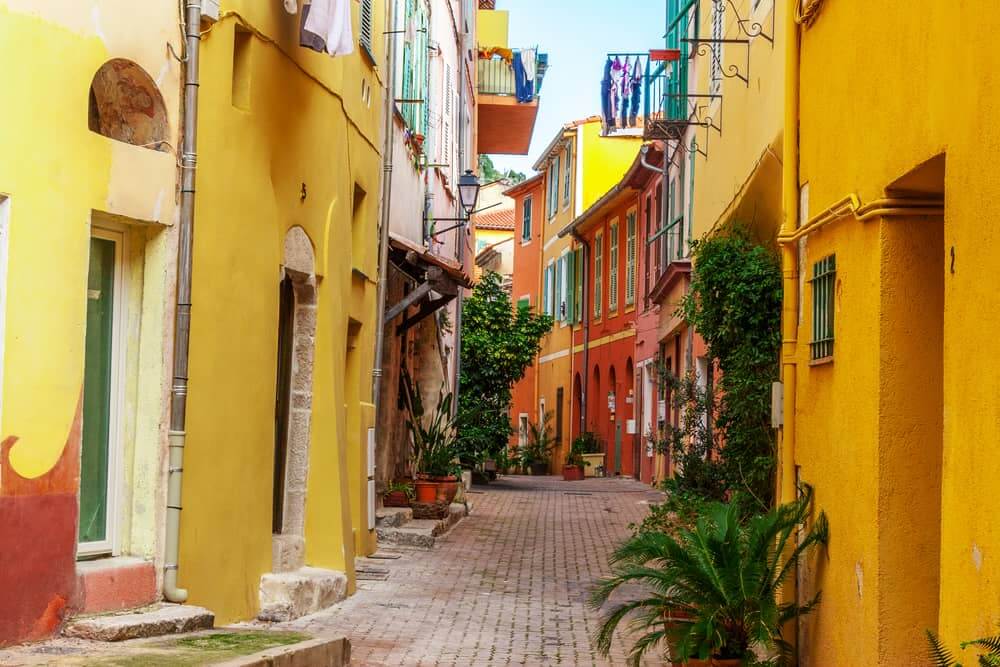
Whether you’re moving to France for retirement, work or just to enjoy the French lifestyle, you’ve probably considered buying property to live in or as an investment.
Whether your destination of choice is Paris, Marseilles, Lyon or any smaller city in between, you’ll find a plethora of options in property for sale, ranging from massive estates to tiny flats and undeveloped plots of land.
Around 64.7% of French residents own a home¹, which potentially means a market wide open for expats and foreign investors. And despite some tricky laws and taxes, many non-residents have taken the opportunity to buy into the European country.
And, if you want to manage your money easily in both France and the UK, check out the Wise account. Wise lets you send, spend, receive, convert and manage your money in multiple currencies – including British pounds and euros – always at the mid-market exchange rate.
Learn more about the Wise account
Please see the Terms of Use for your region or visit Wise fees & pricing for the most up-to-date information on pricing and fees.
While France’s economy has been hit hard by the recent coronavirus crisis, like the rest of the world, it’s not all bad news - especially in terms of the housing market.
After a pause caused by Covid-19, property sales in France started to pick up, as did the average price. But, the second quarter of 2022 brought along a slight dip in the pace of the rising prices. Also, many experts are seeing that the housing market in France is slowing down. And so has the demand for new housing properties in Q4 2022.²
There are currently no restrictions on foreigners buying property in France³, however, you may find the process a bit more difficult as a non-resident. This means quite a lot of paperwork and due diligence.
If you’re working with a real estate agent, the process is likely to be relatively straightforward. But you’ll still need to make sure you read up on what taxes you’ll need to pay, and any visas needed so you can live in your new French home once you’ve bought it.
Even though the UK has now officially left the EU, you’ll still have the right to buy property in France as a non-EU citizen. You can even rent it out if you want to.⁴
However, you will now need to make sure you have a long-stay visa if you plan to stay in France for more than 90 days at a time.⁴
Unlike some other countries, France doesn’t have a ‘Golden Visa’ or other investment scheme for property purchases.⁵ This means that although there aren’t restrictions on foreigners buying property, you’ll need to go through the same process as any other non-EU citizen to get a visa to live in France - and then to apply for permanent residency if you’re eligible.
The cost of property in France varies significantly based on the type of property and where it is.
The following table can give you an idea of what costs might be in select areas, so you can figure out the best places to buy property in France based on your budget. But you should also be prepared to do plenty of extra research into prices in your chosen locale.
| Location | Apartment price per sq.m - in city centre⁶ | Apartment price per sq.m - outside city centre⁶ |
|---|---|---|
| Paris | €12,382 | €8,775 |
| Nice | €6,583 | €3,700 |
| Lyon | €5,411 | €3,938 |
| Toulouse | €4,254 | €3,025 |
| Grenoble | €3,275 | €2,625 |
And, if you’re arranging your property purchase in France while still in the UK, you’ll need a safe, reliable and preferably low-cost way to send over fees, deposits and other payments.
The Wise account could be a great solution, with transparent, low fees, and the fair mid-market exchange rate to convert your pounds to euros. Wise uses sophisticated anti-fraud and other security measures to keep your money safe. You can even track your transfer to check it arrives safely.
Learn more about the Wise account
Please see the Terms of Use for your region or visit Wise fees & pricing for the most up-to-date information on pricing and fees.
You can find the cheapest average prices in Creuze (€650/m2), Haute-Vienne (€1,150/m2), and Corrèze (€1,120/m2).⁷ It’s a general rule of thumb that the centre of France has the cheapest property prices, especially in the rural areas.
It’s fairly common to use a real estate agent (un agent immobilier) to find property in France, especially in more remote regions or if you don’t know the language well.
While the cost can feel prohibitive, in provinces where homes are more spread out and difficult to find, working with an agent is the only real way to ensure you’re seeing all the properties available.
You might also be likely to get a fair price, as there’s always the risk of French sellers inflating prices for foreign buyers. That being said, it’s not uncommon for French agencies to take up to 8% of the total cost in fees (if not paid by the seller).⁸ So, if you’re on a budget trying to house hunt, doing it on your own may be the best course of action.
If you do decide to work with an agent, some of the most well-reputed in France include:
If you’re planning to find your home without an agent, your first stop will probably be real estate websites or portals. Choosing this route can make a lot of financial sense, though the multitude of listings can make your head spin. If you do decide to search online, these sites can be a good place to start:
No matter where you’re buying property, there’s a chance you could get ripped off. Scams are one of the biggest pitfalls to avoid when buying property in France.
The best way to steer clear of scams is to thoroughly research your agent, the property, the market in the surrounding area and what you’re entitled to as a buyer. Some common scams include:⁹
While there are many other scams out there, you can avoid many of them by visiting the property, meeting the seller or agent in person, and refusing to hand over any money before you have a verifiably working key and title in your hand.
Realistically, buying a house, flat or land in France vary significantly by location. While in Paris, you may struggle to find any housing situation outside of an apartment, in the countryside you’ll be welcomed with plots of land, sprawling estates, villas, homes and townhouses.
What type of property you buy will depend on where you want to invest, where you want to live with your family, or how you want to spend your retirement in France.
In France, it's the seller’s legal responsibility to provide you with up-to-date diagnostic reports. Known collectively as the Dossier de Diagnostic Technique (DDT), these reports should cover everything from the presence of lead, asbestos and parasites to the condition of the septic system, the building’s energy performance report (DPE), and the natural disaster risk, among others.¹⁰
Before you agree to buy any property, make sure you’ve received this report and have gone over it thoroughly with your agent.
The DDT doesn’t however cover the kind of comprehensive building survey that we have here in the UK. You’ll need to commission and pay for a full structural survey yourself if you have any concerns.
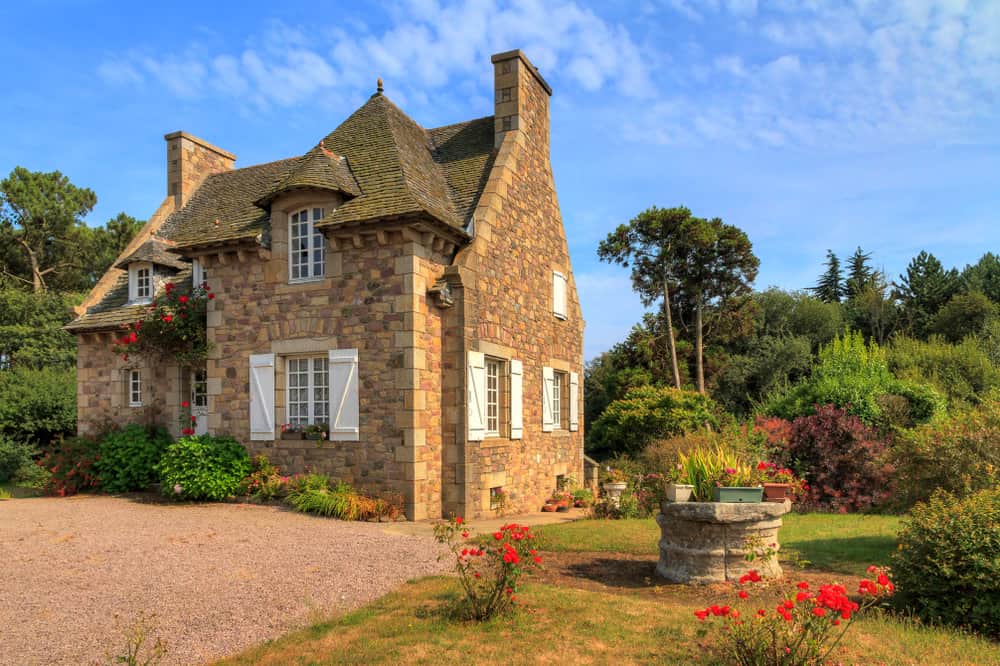
If you’re ready to jump into the property market, the following steps can help give you a rough idea of where to get started:
The good news is, there really aren’t any restrictions for expats hoping to buy property in France - mortgages included. While the exact rules and taxes around getting a mortgage may vary slightly for foreigners, all in all the process is the same as for residents.
In fact, because foreigners buying French property are so common, most national and international banks cater to the service. The only real restriction you may face is the amount you can borrow, as some lenders will only lend up to 50%-75% of the property’s value to non-EU citizens.¹²
Most banks will have English-speaking representatives to help you, but it may be a good idea to hire a professional translator anyway, as getting a mortgage isn't a process you want lost in translation.
If you’re already sitting on enough cash to put down your deposit in your foreign bank account, you may be able to pay the seller directly.
If you’re not yet in France, you might have to pay your deposit from abroad. This might mean making a large international money transfer to cover the deposit amount. If you’re transferring a considerable amount of money across currencies, it’s important you get the best deal available – both in terms of transfer fees and exchange rates.
One smart option is to get a Wise account. With this, you can send, receive, and hold multiple currencies all in one account (including GBP and EUR). You can use it as an alternative to traditional bank accounts, when paying for your deposit or any fees involved with purchasing property in France.
Please see the Terms of Use for your region or visit Wise fees & pricing for the most up-to-date information on pricing and fees.
There are a number of fees involved with French property purchases, for estate agents, notaries, lawyers and other charges. Make sure you consult with a tax specialist beforehand, as they can give you the most accurate information on taxes in France.
Here’s a summary of the kinds of costs you can expect to pay when buying property in France:
And even before buying property in France, tax is one of the most crucial things to factor into your budget. There are two types of tax on residential property in France, both due on 1st January each year:
Taxe foncière is based on the annual rental value of the property multiplied by a percentage set by the local commune. It’s around 1% if the property is your main residence, and up to 3% for second homes.¹⁴
Taxe d’habitation is only due on second properties, and depends on local rates along with the size and condition of the property.¹⁴
After doing the big work, there are some finishing touches you need to take care off.
Home insurance is an essential part of being a property owner, since it guarantees compensation in case of damage. In France, _assurance habitation _is not compulsory for all owners, but it is advisable. However, if you’re a co-owner of a lot in a condominium, you’ll have to get an insurance policy.¹⁵
Co-owners must at least have a policy that covers their civil liability. In other words, the damage to others that they’re responsible for will be paid for by insurance. Besides being convenient, it ensures good neighbourly relations from the very beginning.¹⁵
When it comes to protecting you in case of unexpected events, you should consider taking out a multi-risk home contract (MRH). It will be useful in cases of fire, water damage, natural disasters or other similar events.¹⁵
The next important step would be taking care of some basic utilities, such as gas, electricity, water or phone. This will depend largely on your spending habits and preferences, so individual research will be necessary. However, there’s a lot to choose from, so you should be able to find what you need.
For example, EDF, one of the gas and electricity providers, allows you to do most of this online. Setting everything up is easy and can be scheduled within 5-10 working days.¹⁶ Some other providers include ENGIE, Planète Oui, TotalEnergies etc.
If you’d like to save up on utilities and live a more eco-friendly life, you might want to consider some energy efficiency renovations on your home. France offers loans and different types of aid for these endeavors.
For instance, eco-PTZ is an interest-free loan that covers a maximum of €50,000. If your property is more than 2 years old, this can help you fix your roof, windows, walls or some other things.¹⁷
Once you’ve considered all the most important points of buying property, from location and property type to fees, taxes and other costs - you’re ready to get started in your search. Good luck buying a house, a flat, or land in France!
Sources used for this article:
Sources checked on 21-Dec-2022.
*Please see terms of use and product availability for your region or visit Wise fees and pricing for the most up to date pricing and fee information.
This publication is provided for general information purposes and does not constitute legal, tax or other professional advice from Wise Payments Limited or its subsidiaries and its affiliates, and it is not intended as a substitute for obtaining advice from a financial advisor or any other professional.
We make no representations, warranties or guarantees, whether expressed or implied, that the content in the publication is accurate, complete or up to date.

The essential guide to buying property in Ireland as a foreigner, including property prices, where to buy, mortgages, fees and more.
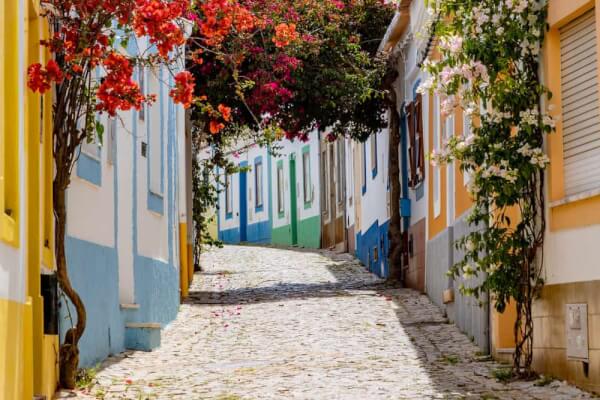
Everything you need to know to buy property in Portugal as a foreigner from the UK. Read about where and how to buy property, average house prices, and more.
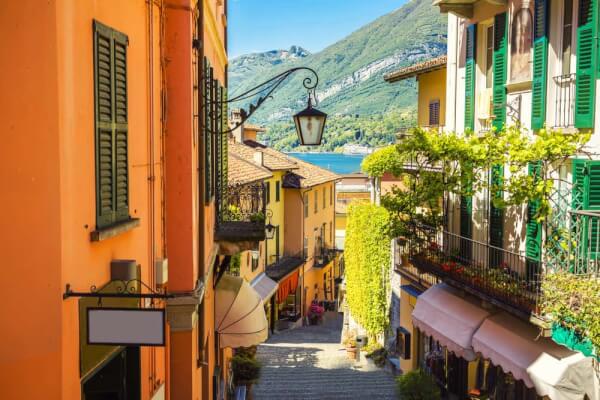
The essential guide to buying property in Italy as a foreigner, including average prices, best places to buy and key legal information.
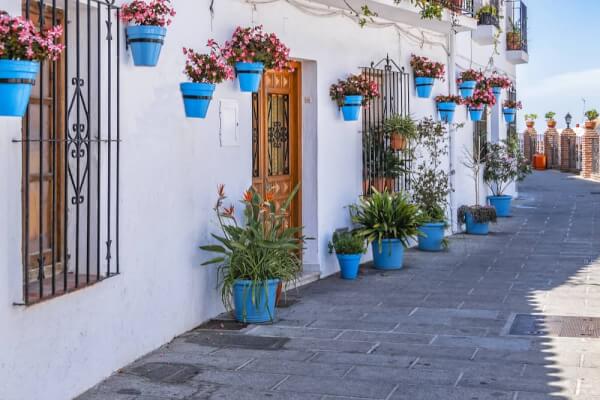
Want to buy property in Spain as a foreigner from the UK? Read our guide on buying property in Spain, including average prices, legal info and more.
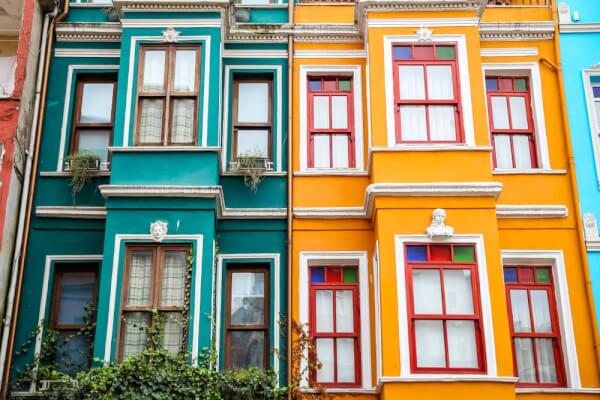
The essential guide to buying property in Turkey as a foreigner, including property prices, where to buy, mortgages, fees and more.

The essential guide to buying property in Ibiza as a foreigner, including property prices, where to buy, mortgages, fees and more.